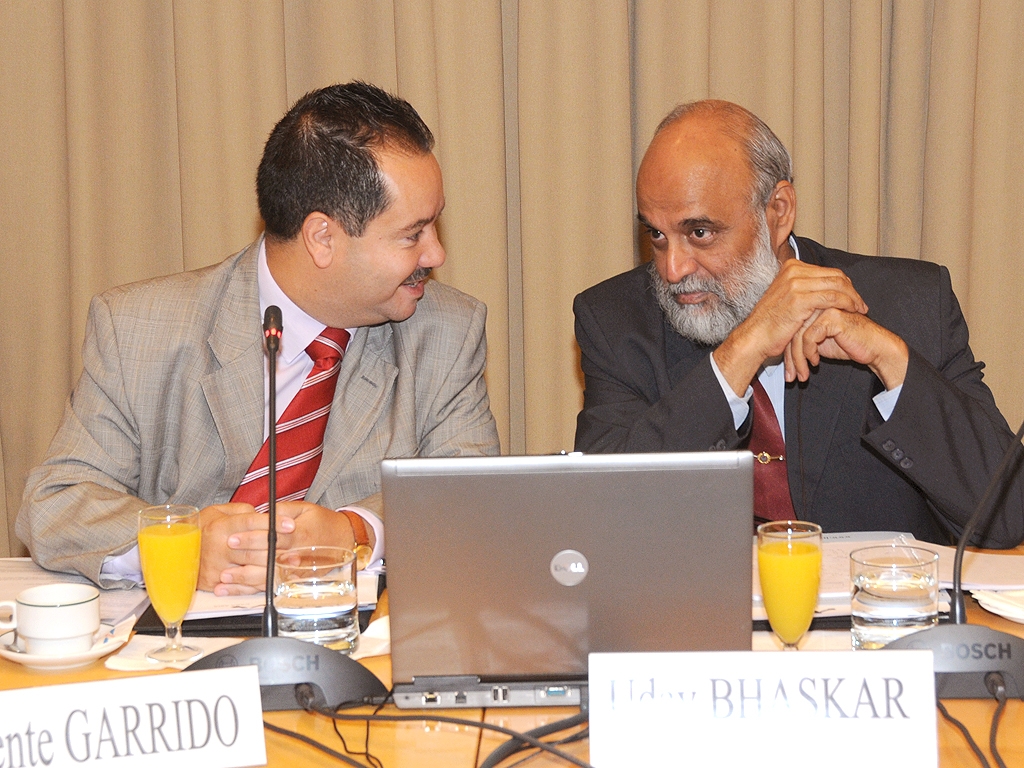United States – China – India relations. Emerging critical triangle: relevance for the European Union

On Thursday, June 27, 2013 INCIPE hosted a working breakfast meeting to discuss India, China and U.S. relations. Leading the discussion was Uday Bhaskar, a retired Commodore of the Indian Navy, who is now recognized in the Distinguished Fellow Society for Policy Studies. His speech focused on questions such as, “With this evolving relationship between the U.S. and India, what are the implications for China?” He emphasized the complexity and details that make up the U.S. and India relationship, using examples of national security, economics and nuclear power.
Bhaskar began by introducing what he called the “critical triangle.” The “critical triangle” is an emerging, global, political system that focuses on three points: the U.S., China and India, who have become the three major powers of the world. In terms of economy, India remains in a distant, but strong and constant, third place. The U.S. is still in first place with the strongest economy and China is in second place and on the rise. The U.S. also remains on top in terms of security, technology, social and political power, and military. China follows in second place and India in third. Though the European Union could probably be a contender for most powerful, the “critical triangle” is focused on single states.
The asymmetrical bilateral relationships between these three states were another focus of this “critical triangle”. Their bilateral relationships affect the triangle, which ultimately affects the global community. All three states, China, the U.S. and India, influence one another. For the U.S. and India to reach an agreement on nuclear power, China would have a lot at stake. When the U.S. and China decided they would take on the responsibility of Asia together in the 1990s, India had a lot at stake. The three powers are so interdependent and competitive at the same time, thus the bilateral relationships are extremely important. Relations between India and the U.S. are very open, as they are both democratic states. China is more difficult to have open dialogue with, though, especially because they reveal so little internal information to the rest of the world—no one knows what is happening behind closed doors.
Bhaskar also brought up the concept of a “macroeconomic train” that is in constant motion. The market cannot be stopped or controlled by any particular state. He tied this in with the role of globalization and state security as well. An interesting point made was that globalization is nothing new. Even before the Romans, empires across the world were trading with one another. Globalization has changed however, due to modernizations like technology and new ideologies. Transactions and markets are no longer the only thing to take into consideration within bilateral and multilateral relationships. The globalization happening today has caused uneasiness in security that every state feels. Even though the U.S. is such a clear, dominant, global power, there is still a wariness of the “global situation of today”. The post 9/11 world in particular makes for major strategic and security fears.
The final main focus of the meeting was the Nuclear Non-Proliferation Treaty (NPT), which tied in with the national security themes. The U.S. is a member state of the NPT, but India is not. The Indian government believes that every state should be able to decide for itself the extent of its own national security system. China supporting Pakistan´s nuclear program is a cause for major concern in the U.S., though they do not openly voice it. India is less concerned, or at least would never question China and Pakistan´s relationship in this field.
As a fourth major player in the world, the E.U. must decide where it wishes to stand in the context of this developing “critical triangle”. Asia is no longer a place to be assessed purely based on economy and market transactions. China is an obvious power, but India, as Asia´s largest democracy, is also a soft power with a lot of influence in Asia. With both China and India playing such major roles on the global scale, not just in Asia, the E.U. must take into consideration both strategy and security in the context of Asia. A major question to be asked is, “Are bilateral and multilateral relationships to be based solely on the plane of transactions, or on values as well?” And then the discussion must push further as to the texture of these values, and when they come into play.
Samantha Cutts
Research Assistant
Descargue la versión completa de esta publicación, disponible en PDF

